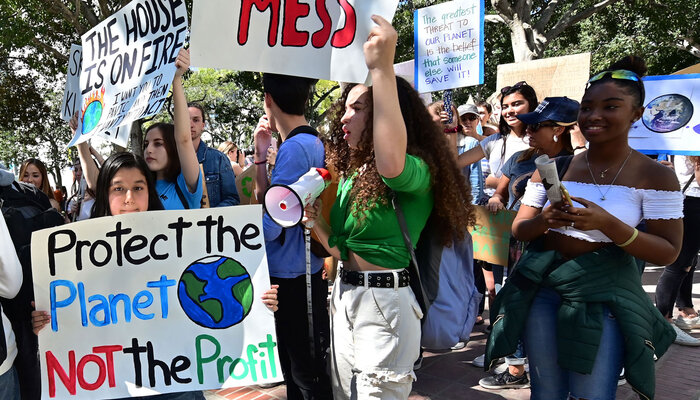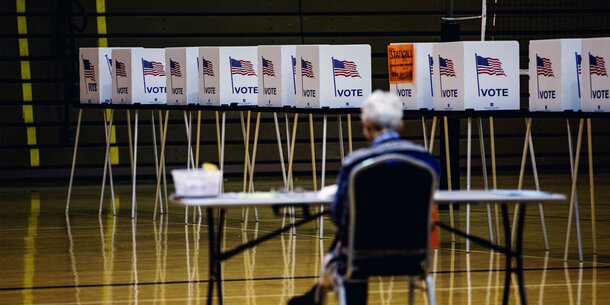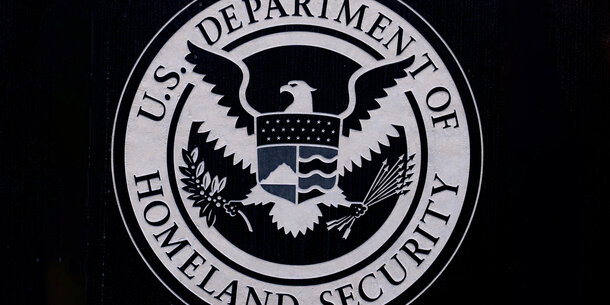When I was about 15 years old, I started organizing around climate change, working with friends to organize teach-ins at high schools and middle schools around the region. At 18, I attended the United Nations Climate Conference in Peru in 2014, the meeting that preceded the Paris climate summit, where a landmark global agreement on climate change was signed. If I could go back in time, I would have never attended the conference — it aroused in me an overwhelming feeling of powerlessness and hopelessness that led me away from the climate movement for years. The huge jump in scale alongside the hyper-individual and competitive atmosphere of the conference caused me to lose any sense of individual efficacy or collective power.
Recently, there has been more talk about “climate anxiety.” A survey published in the Lancet in December 2021 reported that 45 percent of young people aged 16 to 25 said “their feelings about climate change negatively affected their daily life and functioning,” and an alarming 75 percent “think the future is frightening.”
There is no doubt that climate change will define our futures, regardless of actions taken in the coming years; action today will affect the degree of harm but not the fact that we have transitioned into a period in which our ecological systems are being irreparably transformed by human activity. Harm which — it is important to note — is caused disproportionately by a global minority: largely wealthy, largely white.
The science has made clear that the stakes are the ability of our planet to meet the preconditions for human life itself. For young people, threats like the climate crisis can seem insurmountable. Civic engagement provides a pathway to finding community amidst those anxieties, bolstering mental health and wellbeing in the process.
Climate change is a real threat, provoking rational anxiety. The New York Times recently documented the increasing number of people, young and old, who reach out to professional psychologists for help with their eco-anxiety. There is even a burgeoning number of climate-aware psychologists, who understand the threat climate change poses to ecological systems and individual mental health. However, there are many barriers to accessing professional help, especially for young people who may not be comfortable broaching the subject with their parents or guardians.
Further, “interventions to protect individual mental health are unlikely to be fully effective in the absence of societal, or even global, attention to the issue,” concludes one study on eco-anxiety. Therefore, engagement in efforts to mitigate climate change can provide a pathway to improving mental health and wellbeing.
This holds true for young people. A 2021 study from the Center for Information and Research on Civic Learning & Engagement at Tufts University found that amidst the pandemic, which has taken a “huge toll on young people’s mental health,” civically engaged youth report higher wellbeing. Interestingly, the study found that most young people reported a desire to get involved politically, so “gaps in young people’s engagement patterns are more often driven by disparate access than disparate enthusiasm.”
As such, improving young people’s access to means of civic engagement can bolster not just the health of our democracy, but their mental health as well. A new report from the Brennan Center supports this point and explores the diversity of forms youth civic engagement can take, including activism, voting, community service, and more.
Youth climate activism has been especially visible in recent years, from school strikes to mass protests. There is some evidence that climate anxiety may motivate engagement; however, “these emotions can be challenging for young people to navigate and without adequate support can lead to apathy, defeatism, and denial.”
This may be linked to young people’s feelings of efficacy. One study notes, “Young people do not necessarily see what they can do in response to climate change, and when perceived self-efficacy is limited, personal engagement with climate change is likely to be lower.”
Working within the boundaries of electoral politics can lead to a feeling of powerlessness. For one, young people under 18 are not able to vote, leading to scenes like this one with Sen. Diane Feinstein (D-CA), dismissing young climate activists — her constituents — with “you didn’t vote for me.” For young people above the voting age, the Brennan Center report reminds us, “democracy in the United States has not been realized equally for all people.” Not everyone has equal access to formal political participation, such as voting or running for office, due in part to widespread voter suppression, gerrymandering, and lack of pathways to citizenship. Additionally, political institutions may feel slow and ineffective or caught up in bureaucracy and partisanship.
Further, those same political institutions which lock out young people are also the ones upholding the status quo: continued extraction of fossil fuels for short-term economic gain.
Therefore, with access to traditional political institutions largely inaccessible to young people as individual political actors, they are finding strength in numbers. While evidence is inconclusive as to whether feelings of self-efficacy lead to engagement in climate activism, studies show that belief in “collective efficacy” better predicts likelihood to engage. Young people are beginning to rethink individual political agency and “rediscover the citizenship power of social agency.”
Where young people may find power is community-level, grassroots, engagement, where one can easily build relationships to process anxiety and see tangible results. This might look like the many mutual aid projects young people started or supported during the pandemic. As Indigenous environmental leaders counsel in The Red Deal: Indigenous Action to Save our Earth, no matter where we find our place in the movement for a more just and sustainable future, “we must simply get to work.”
Recent years have seen many young people emerge as leaders of movements for social change, with young women of color taking the lead. The climate movement shows us that there is room to find collective power organizing in our communities. Improving access to civic engagement opportunities will not only strengthen our democracy but help address a growing mental health crisis.



